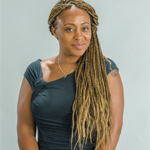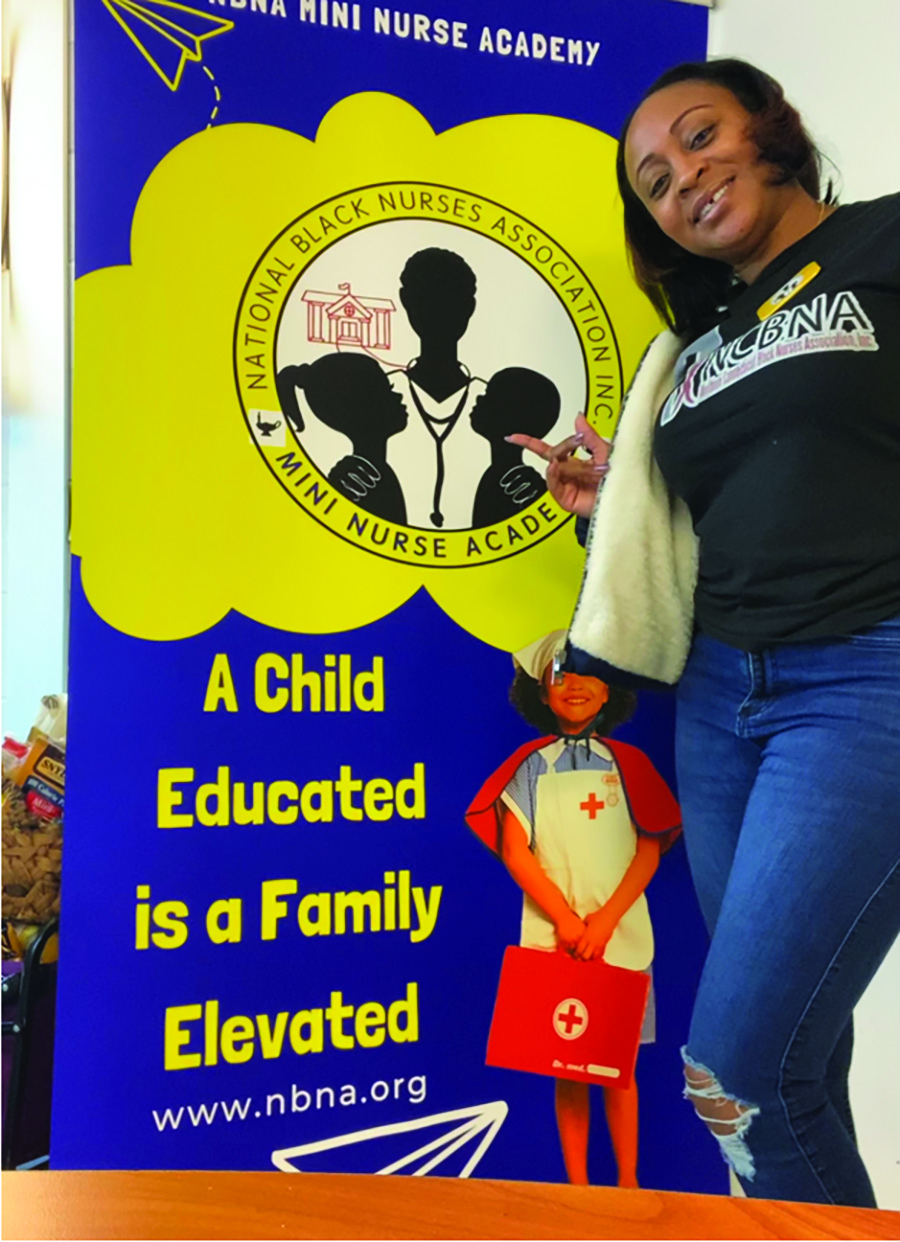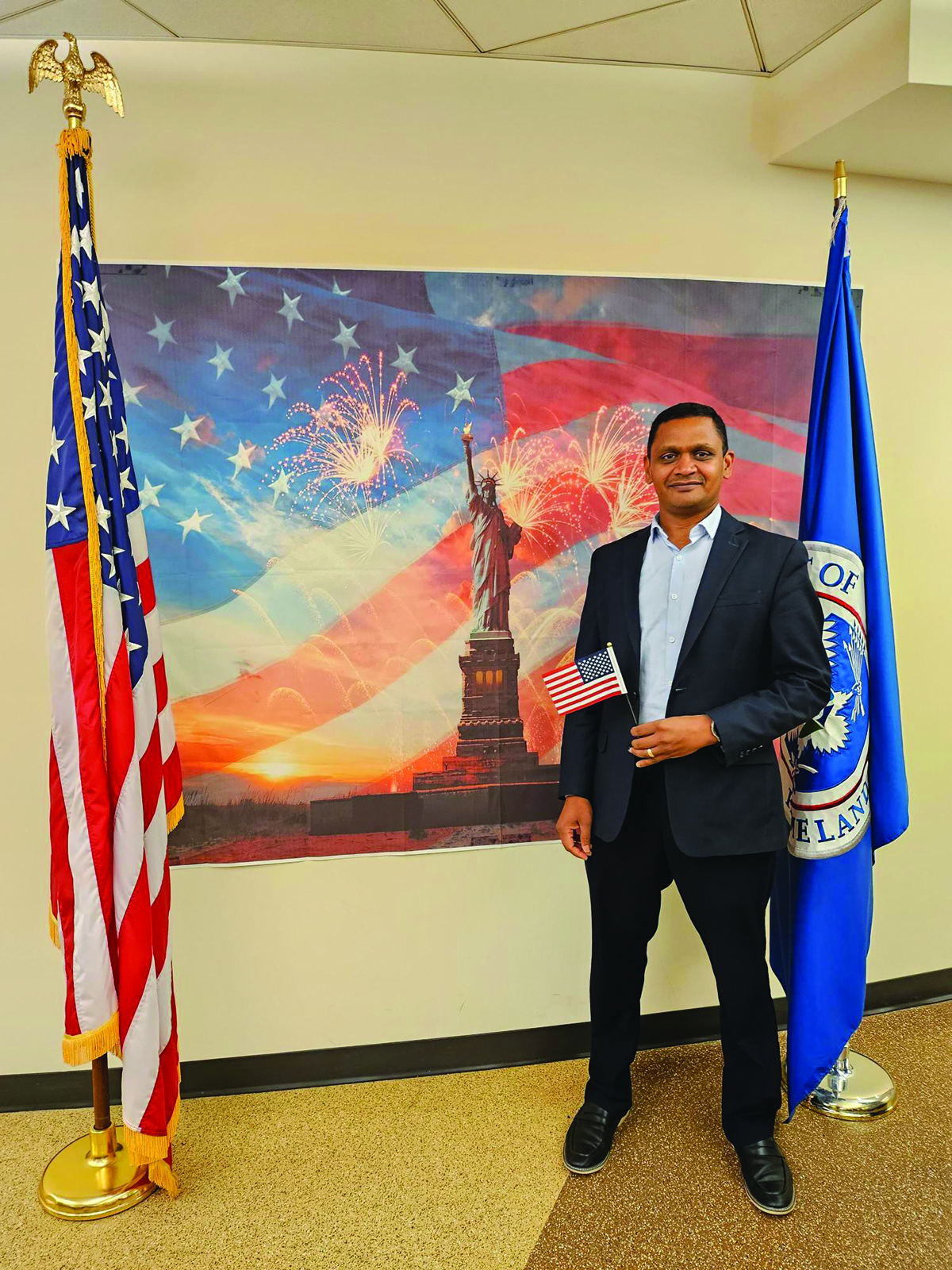Caring for the Community Generates Interest in Nursing
By Levell Williams
 Simona Z. Dowdy got her start in healthcare at East Hartford High School, when teachers and counselors recommended her for a Hartford Hospital program that cultivated an appreciation for the way nurses can empower patients to take charge of their health.
Simona Z. Dowdy got her start in healthcare at East Hartford High School, when teachers and counselors recommended her for a Hartford Hospital program that cultivated an appreciation for the way nurses can empower patients to take charge of their health.
Impressed with her work, Dowdy’s clinical instructor personally delivered her resume to a hospital manager, launching her Hartford HealthCare career as a patient care assistant when she was 19.
In that role, she met Vicie Brooks, Hartford Hospital’s first community nurse liaison, who inspired her by bringing care beyond hospital walls, providing clothing, food and shelter to those in need.
“She was the first and only community health worker in the Greater Hartford area,” Dowdy says.
With support from Brooks and others, Dowdy earned an associate’s degree in nursing at Capital Community College and a bachelor’s in nursing from Grand Canyon University.
A mentor and friend, Brooks also introduced Dowdy to the Northern Connecticut Black Nurses Association (NCBNA), where she remains involved in community work, providing nutrition education, blood pressure screening, clothing and food drives and other resources.
After Brooks retired in 2019, Dowdy carries the torch and continues to champion community work. In addition to NCBNA, she is an active member of HHC’s Black and African American Colleague Resource Group (BAA CRG), which promotes equity and belonging among colleagues and supports community care. She’s also a founding chair of the Ann Jennings-Vicie Brooks Fellowship, mentoring aspiring nurses.
The fellowship provides career development and financial support to nurses with associate’s degrees who want to earn a bachelor’s.
In her official role, Dowdy is community care manager with HHC’s Integrated Care Partners, where she helps ensure patients have healthy care transitions.
She also leads her own community work, holding the holistic women’s wellness event A Rose in Hartford, in partnership with the Hartford-based women’s empowerment organization Sister Circle, for two years. Events blend services like blood pressure screenings with poetry and dancing for a unique take on the beauty and resilience — flower and thorns — of women’s wellness.
Last spring, she helped introduce Hartford elementary and middle school students to nursing as part of NCBNA’s Mini Nurse Academy where they did blood pressure education, pulse checks and chest compressions.
Such community work enabled Dowdy to pay forward the investment others made in her. As a leader in the CRG and fellowship, she is an example and mentor to aspiring health professionals, as Brooks was for her. Like her teachers and counselors, she helps budding professionals discover careers in nursing.
“The most important thing is really teaching people how to take care of themselves,” Dowdy says. “If we can meet them [where they are] and provide that education to them…it’s going to be a healthier world, I feel.”

A Piece of Paper for Peace of Mind
By Elissa Bass
Twenty-two years after arriving in the United States as a 22-year-old student, Shasi Malipeddi became a citizen in September 2023.
While cause for celebration, the naturalization ceremony also meant Malipeddi, director of IT security for Hartford HealthCare, had to give up citizenship to his home country of India.
“Having to revoke my Indian citizenship was one of the reasons it was a hard decision,” says Malipeddi, whose wife retains her Indian citizenship, with a green card, to travel freely back to India in case their parents need help.
The education system in the United States is what first drew Malipeddi, who came from Andhra Pradesh in south India to earn a master’s degree in mechanical engineering at Cleveland State University. After graduation, he started an IT job that eventually brought him to Hartford HealthCare. He enjoys the challenge of staying ahead of hackers’ technological advances.
“You have to keep learning and keep innovating as things in IT change,” he says.
His complex journey to citizenship began in 2007 when he applied for a green card authorizing him to live and work in the U.S. His previous employment visa needed renewal every three years and could be denied.
“You are at the mercy of someone who doesn’t know you to decide your fate, if you can stay or leave,” he says.
In 2012, his renewal was denied and Malipeddi had to return to India, leaving his wife and infant son (they now have two sons). He reapplied and was back in the U.S. two months later, but the experience was nerve-wracking.
Meanwhile, the green card application took a decade to be approved.
“There are a lot of people from India applying. Ten to 12 years is a typical amount of time,” he explains, adding he applied for full citizenship in February 2023.
The citizenship process is rigorous and includes a civics test. There are 100 possible questions and an immigration agent chooses 10 randomly for each applicant to answer during an interview.
“It is an interesting test,” Malipeddi chuckles. “I am a news buff, so I could answer pretty well. There are questions like, who is your representative in Congress and when was the war with Mexico?”
Becoming an official citizen, he admits, was less emotional for him than getting his first green card, but underscores the permanence for him.
“America is my home,” he says. “I have lived in the United States as long as I lived in India — 22 years. I found my home, where I will grow old. It’s a piece of paper, but it means a lot.”

